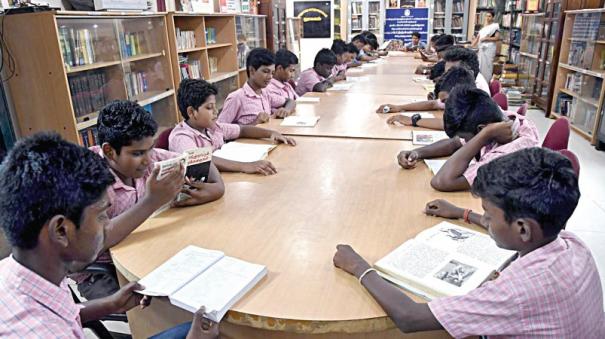Tamil Nadu's Education Policy: clash with center for Language Autonomy
Tamil Nadu's School Education Minister Anbil Mahesh has voiced strong objections to the central government's new education policy, particularly its three-language principle, which he argues imposes Hindi on the state's educational framework.

The Minister emphasizes that Tamil and English are sufficient for students in Tamil Nadu, arguing that the focus should be on enhancing quality education rather than enforcing language learning.
The controversy arises from the central government's assertion that the policy aims to provide students with the opportunity to learn another Indian language rather than mandating Hindi. However, Mahesh insists that this is a veiled attempt to promote Hindi, which he believes undermines the linguistic identity of Tamil Nadu. He references the state's historical stance on education, dating back to 1967, when the DMK party established a two-language policy centered around Tamil and English.
Mahesh contends that the state has demonstrated success with this approach, producing notable figures in various fields without the need for additional language requirements. He argues that the current educational framework should prioritize science and technology over language instruction, as the state's vision is to cultivate future scientists, doctors, and engineers rather than translators.
Concerns have been raised about the potential impact of this policy on student dropout rates, particularly if vocational training takes precedence over academic subjects. The Minister warns that an increased emphasis on language learning could detract from the core objective of providing a robust education that prepares students for global challenges.
Additionally, Mahesh highlights disparities between students in government and private schools regarding language study opportunities, emphasizing the need for equitable access to education. He expresses apprehension that Hindi, being a minority language in Tamil Nadu, is being positioned to dominate and potentially marginalize Tamil, echoing concerns about linguistic hegemony seen in other Indian states.
The Minister's frustrations are compounded by recent funding cuts to the centrally sponsored Samagra Shiksha program, which he claims jeopardizes the future of 43 lakh students in Tamil Nadu. He challenges the Union Education Minister's authority to reduce funding for a program critical to the state's educational infrastructure, asserting the right of Tamil Nadu to determine its educational policies without external imposition.
In conclusion, the ongoing debate over the three-language policy underscores the broader tensions between regional language preservation and national educational directives. As Tamil Nadu navigates these challenges, the focus remains on ensuring that the state's educational system continues to thrive while honoring its linguistic heritage.
What's Your Reaction?
















